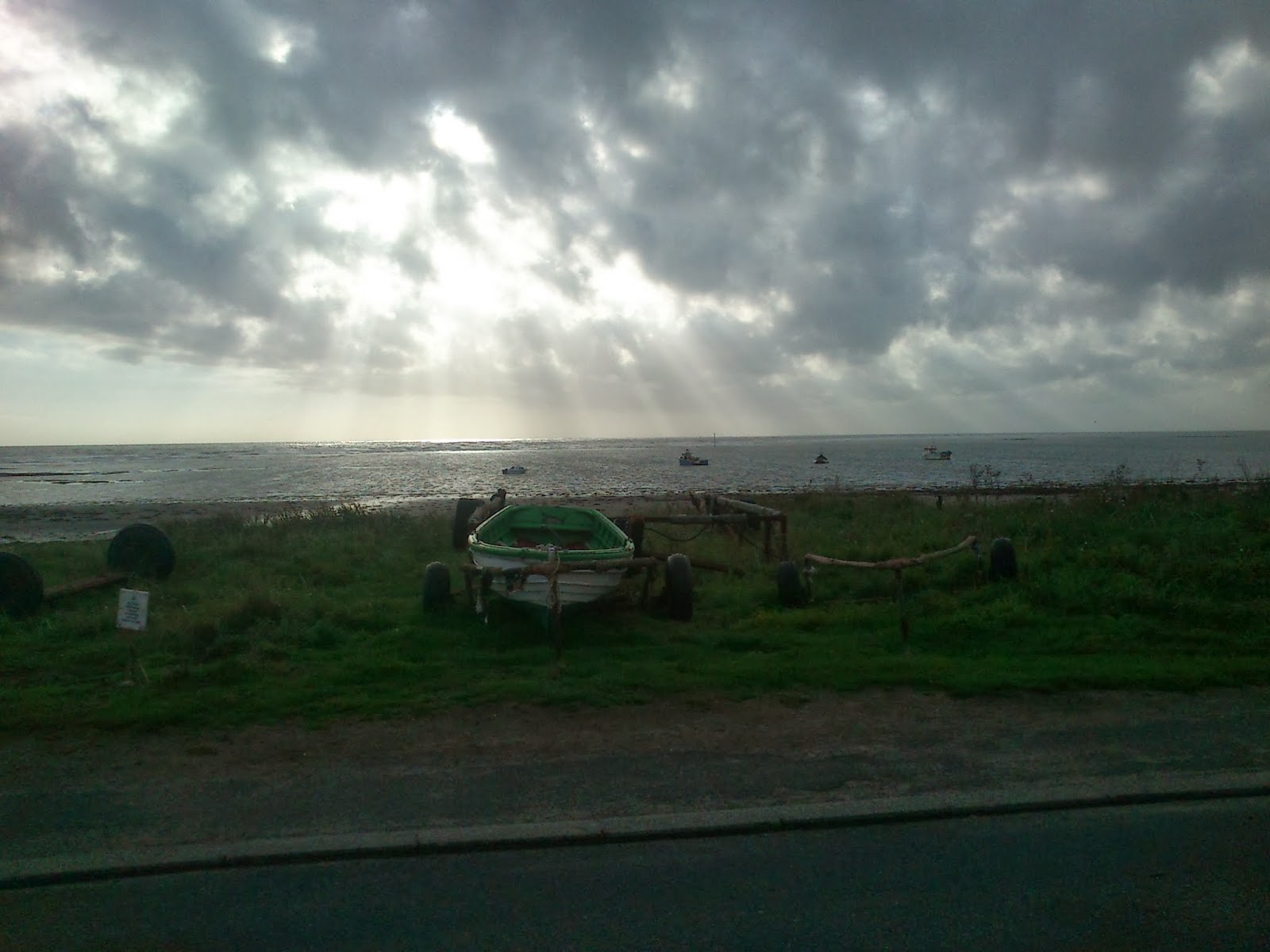It's about what's over the hill
I finally realized most people view cycle tourists as a little odd when a small town Scottish librarian, while describing the location of a book to a small child, inadvertently whispered just a little too loudly, 'It's on the shelf next to the strange gentleman.'
I suppose I did cut an unusual figure, wearing beige combat shorts over black winter cycling tights, grubby hiking boots, and a startling affront to the cycling jersey industry. A month's growth of beard added an element of destitution, and an unwashed fug established my own political exclusion zone, diplomatically sweetened by deodorant and talcum powder.
This did contrast strongly to a Glaswegian librarian several weeks later, after a tactical shave and wearing more conservative clothing, whom I overheard discussing me with his workmate in conspirational tones: 'Oh, he's a writer, you know. Travelling the country on that bike outside after spending 20 years in America!' made me feel far more professional than I looked, felt, and indeed, smelled.
Becoming nomadic
We're born to move, nomads by nature. Evolution programmed us to wander. Which probably explains why we travel for recreation. What we usually refer to as travelling, however, isn't really. If you think about it, how much of a culture do we really experience rushing around in planes, trains and automobiles and staying in resorts and hotels?
Of course, it would be a little naive of me to think roaming the world on a bicycle could possibly replicate the stresses and strains, or lack thereof, of our nomadic ancestors, but the daily quests into the unknown for food, water and a place to sleep are certainly a lot more in tune with our primary genetic motivators than commuting to cubicles to electronically shuffle virtual paper. The recreation of novelty is built in, so I don't have to tack on artificial pastimes to relieve the stress such sedation accumulates.
See what I mean? I look forward to your comments.
Returning to the village
It was almost 20 years ago when the idea hit me.
Stumbling drunkenly through New York City's Central Park on a Christmas break from university, attired in the student uniform of open fly, coat at half mast and left trouser knee skidded with dogshit, I squinted up at the towering border of office skyscrapers and, surprisingly lucidly given my pronounced irrigation, surmised they would stand empty once this new-fangled internet thing took hold. Virtual offices would come into vogue, and people would work from home. The very idea of commuting, unless one's job had a physical component, would be ludicrous. Office workers would migrate from the towns and cities to live in more amiable village surroundings, with neighbours they could talk to, streets they could walk down and an altogether more pleasing living arrangement. Those remaining urban would re-realize the benefits of neighbourhoods, which would return to mirroring a village's autonomy. Locally owned artisanal outlets and services would re-emerge and flourish, buttressing the sense of community. The importance of friends and family would inch from industrial hibernation.
I proposed, stifling a belch and tripping over a trash can, that we secretly longed for the village: smaller, more cohesive communities typifying our nomadic and early agrarian ancestry. We've spent hundreds of thousands of years in these small groups, and only the last ten thousand or so shifting towards conurbations. So it was obvious to my sottish state, and accurate, later sobriety agreed, that this is where our more evolutionarily entrenched needs and wants could be more comprehensively fulfilled.
Small community friction
However, I recently read 'The Cook's Tale' by Nancy Jackman and Tom Quinn, the latest confirmation of something I'd long witnessed: small, close communities, even artificial ones such as sports teams and social groups, are often plagued by intense personal rivalries and infighting (despite a population of ordinarily calm, educated, intelligent people). Show me any social club and I'll show you a Shakespearian intrigue of imagined insults and simmering mistrust. I think this has to do with perspective: when we can't see the forest for the trees, as it were, it's a lot harder to navigate.
Yeah, so I was wrong about the timeline. Who knew the baby boomer business generation would be so suspicious of change? To this day many refuse to relax their grip on slave galley-like supervision, lording over rows of cubicles like a Roman whipmaster barking orders to the fat drum gimp. And the flood to the village is but a trickle. Sure, maybe the tech isn't quite there yet -- we've yet to invent a satisfactory virtual alternative to a face-to-face business meeting, for example -- but surely Skype suffices for most interactions?
The transition to cyclist
Before I left, and on the early part of the tour, I trilled adamantly to anyone who'd listen that I'm no cyclist and this wasn't about the bike. I fought the pigeonholing like some exotic deviancy, but slowly relented over time as I grew to long for the daily ride. Not because it quelled some carnal urge, you understand, but because I became addicted to moving. I became a cyclist, despite my protestations. I still refused to fastidiously record mileages and equipment lists because these were the preserves of the blogging cycle tourist, not the professional writer roaming the landscape searching for meaning. I was being arrogant, essentially."In shedding the shackles, we are released to be who we are. For some, that can be frightening. The deeper you ride into the back of beyond, the deeper you travel into yourself, gradually experiencing the change of consciousness that ultimately reveals things spiritual. Why else did prophets, hermits and the leaders of the world's great religions enter the wilderness? Ironically, in modern times we enter to escape the inescapable -- ourselves. Yep, it's a zen trip." John Stuart Clark
In more ways than one, it's about what's over the hill.

.JPG)




.JPG)

.JPG)
.JPG)
.JPG)
.JPG)
.JPG)



Comments
Post a Comment